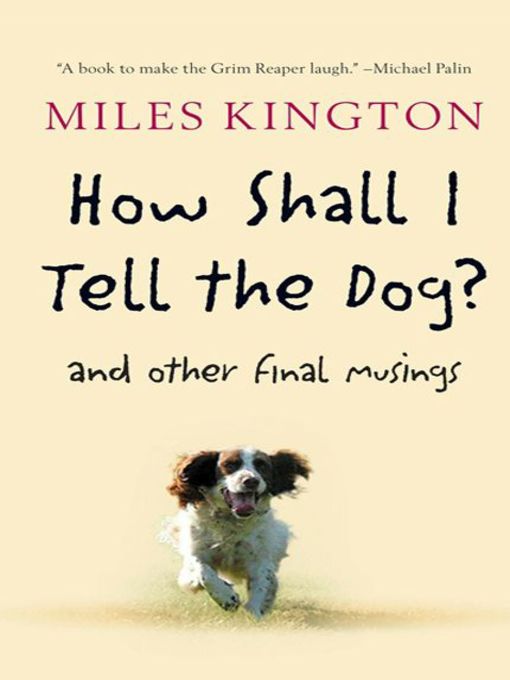
How Shall I Tell the Dog?
And Other Final Musings
کتاب های مرتبط
- اطلاعات
- نقد و بررسی
- دیدگاه کاربران
نقد و بررسی

Starred review from August 3, 2009
Written as a series of fictional letters to his agent and friend, Gill, proposing the book he has more or less written, late British humorist Kington (1941-2008) offers a witty, bittersweet slice of meta-nonfiction about his struggle with pancreatic cancer-or, more precisely, his struggle to write a book about it: "phrases like 'cashing in on cancer' give quite the wrong impression. What I mean is, 'making cancer work for its living.'" One letter is devoted to a list of cancer IFAQs, or Infrequently Asked Questions-what you wouldn't know to ask and wouldn't like the answers to besides-in which Kington gets wrapped up in ideas of denial (more like "cold-shouldering?") and astrology. Another responds to bestseller 1,000 Places to See Before You Die, which he calls "grimly prescient" and "nasty"; he proposes a more practical volume like A Hundred Things to Do Before You Die, with simpler goals like whistling loudly. And, inevitably, he considers the question of his healthy 10-year-old springer spaniel, who has at least five years on Kington. Throughout the goofy proceedings, Kington remains tuned to his condition but focuses on his relationships and life story, sparing much of the harsh physical reality; perhaps more stirring in omission, Kington writes around the pain to produce a touching, funny and life-affirming look at death.

July 1, 2009
When British humorist Kingtonwas diagnosed with late-stage cancer at the age of 66, he decided to treat the news like he treats other thoughts running around in his brain: with a book. But he wasnt sure just whatkind of book to write: Should it bea how to survive the bad news type, or maybe the what I did with my remaining days/weeks/months type, or even the what your body goes through when you have cancer type? What eventually evolved was a book of letters to his agent exploring just these very questions, putting the reader in the here-and-now as Kington visitsmyriaddoctors, talks to his family and friends, considers which celebrities he might like to murder, and generally goes about his daily life as a writer contemplating his final days. Remarkably, the tenor remains light, even during his most difficult times. Gallows humor may be the most difficult kind of comedy, as its designed to make the audience uncomfortable. Kington somehow makes it work.(Reprinted with permission of Booklist, copyright 2009, American Library Association.)

























دیدگاه کاربران